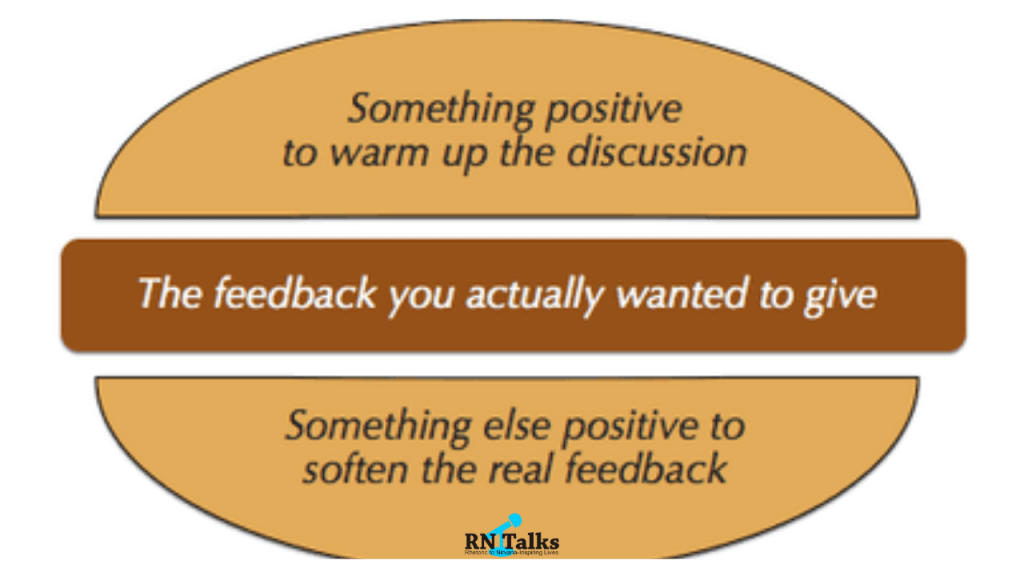Offering Constructive Criticism

Chambers English Dictionary defines criticism as ‘passing judgement’ on another person.
Its primary sense, hence, it may well have been both positive and negative, in a similar sense that a movie critic can give a very positive review.
However, there it is beyond doubt that the majority of us would see personal criticism as negative.
➤ You Might Like To Read: Harness The Positivity Of The Universe
‘Criticism’ might be recognised as another term for ‘negative feedback’.
This article illustrates how to compose your critical analysis of others in a ‘constructive’, way so that you set the platform for reforms, rather than ‘destructive’ which could ‘knock down’ the other person’s self-esteem.
Destructive and Constructive Criticism

Our article on Dealing with Criticism demonstrates that the contrast between constructive and destructive criticism is in the manner how the comments are delivered.
Destructive criticism extends no help or support for improvement, simply emphasises the problem as perceived by the person delivering criticism.
➤ You Might Like To Read: 7 Challenges In Life You Need To Deal With
It is normally expressed as a judgment about the recipient, their attributes or skills and not their behaviour.
You can conceive it as serving to bring someone down, and making them feel dejected, whether this is intentional or not.
On the other hand, Constructive criticism recognises ways in which the recipient can make adjustments that improve circumstances.
It strengthens up the other person and encourages them to make positive changes to their behaviour to avoid future obstacles.
The most excellent way to offer constructive criticism is to consider it as ‘negative feedback’, and always follow the rules about delivering feedback.
Desirable Practices for Giving Feedback

Constructive Criticism Concentrates on Behaviour
Conventional feedback, whether positive or negative, concentrates on behaviour.
It should not be regarding what the other person is, or what they think, but what they accomplished.
Constructive criticism carries this one step further and concentrates on the behaviour that you desire, not the behaviour that you observed and did not appreciate.
➤ You Might Like To Read: How To Break A Bad Habit
Top Tips for Constructive Feedback
Avoid stating: ‘Please don’t do that, I hate it,’
Attempt saying: ‘I would really like it if you would do this, rather than that, as it would have x effect.’
Feedback or criticism couched in these words is much more comfortable to accept and act upon because it states clearly what behaviour would be better, and offers a solution or alternative for remedial measures.
➤ You Might Like To Read: 15 Motivational Quotes to Inspire You to Be Successful
Focus on Feedback Should Be on the Effect on You
Excellent Feedback Concentrates on the Effect on You, Not on the Other Person’s Purposes
This is not self-indulgence, but a mere perception that you do not know what the other person meant or presumed, only the influence that it had on you.
➤ You Might Like To Read: 25 Best Inspirational Valentine Love Quotes and Sayings
It is, hence, most accommodating if you can give your feedback in terms of the outcome that it had on you. For instance, you may state ‘When you do that, I feel like this’.
Constructive criticism takes this farther, however, and concentrates on the behaviour that is essential to induce better responses.
Top Tip for Constructive Feedback
Don’t say: ‘When you talk loudly it gives me an ear ache!,’
Instead, try saying: ‘If you were to talk softly, I think it would make me feel more comfortable.’
➤ You Might Like To Read: 20 Children Quotes-Perfect For Any Child
Effective Feedback Requires to be Very Precise
Conforming feedback is as precise as possible.
The more precise you will be about the response that you want to observe, the easier it is for the other person to perform it.
➤ You Might Like To Read: Celebrating An Occasion Called Life!
You don’t even require to say what behaviour you don’t approve: instead, you can try requesting if the other individual would be willing to do something unconventional.
➤ You Might Like To Read: 30+ Best Life Quotes and Acceptance Quotes To Inspire You
Top Tip for Constructive Feedback
Try suggesting the other person to do you a simple favour. It doesn’t have to be a criticism of their previous behaviour at all.
Use phrases like: “Would you mind doing x?” “Please will you do y? It would be so considerate.”
These may not extend long-term solutions, but it will display, quickly and efficiently, what you would prefer them to do.
You can also expect that they will take it on board as a permanent change.
Feedback Needs to be Delivered Immediately
It’s no good hauling up old experiences long afterwards.
To be effective, feedback and review need to be more or less instant, while the experiences are still fresh in everyone’s thoughts.
That said, if you’re outraged about what’s occurred, it’s presumably best to wait till you are more relaxed as this will empower you to keep the discussion constructive.
➤ You Might Like To Read: 25 Best Motivational Quotes to Kick-Start Your Day
Top Tip for Constructive Criticism
Don’t get mad, get even!
Remember you’re not looking to take your revenge, but to calm down and get your bond back on an even foothold.
Don’t be lured to criticise when you’re offended. It won’t be pleasant, and it unquestionably will not be constructive.
Feedback Has To Be Perceived to be Effective
This ensues from the last rule: you require to give feedback, especially negative feedback, at a time when the other person is inclined to hear it.
It’s no good giving feedback when either of you is offended, or when you’re exhausted, or not ready to hear potentially irksome news.
Pick your time and ensure that you make it obvious that you have something important to announce.
To learn more about getting your timing right, have a look at our page on Emotional Awareness to support you to weigh up on body language and other evidence about receptiveness.
Put Yourself in the Other Person’s Shoes

Above all, before you furnish any sort of criticism or negative feedback, consider how you would wish to hear the same piece of information.
Would what you want to say be acceptable to you?
Question yourself honestly, and think about the response.
Only if you are sure that you would find it tolerable and acceptable should you give that bit of criticism in that style.
Otherwise, it’s presumably best to go back to the rules on this page and find a different way.






